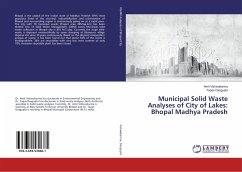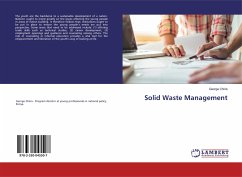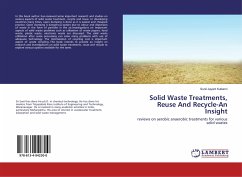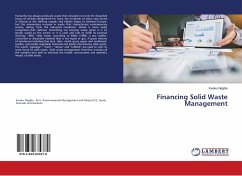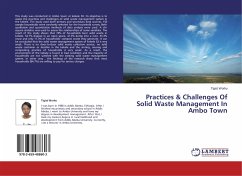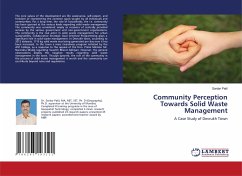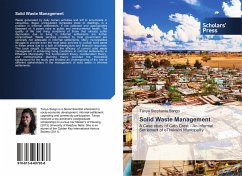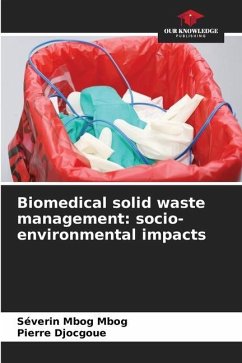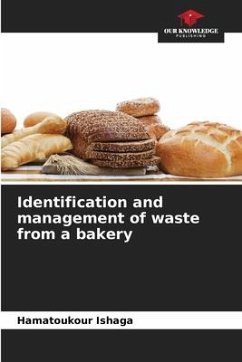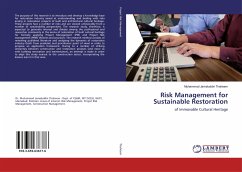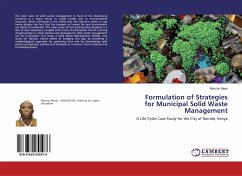
Formulation of Strategies for Municipal Solid Waste Management
A Life Cycle Case Study for the City of Nairobi, Kenya
Versandkostenfrei!
Versandfertig in 6-10 Tagen
36,99 €
inkl. MwSt.

PAYBACK Punkte
18 °P sammeln!
The poor state of solid waste management in most of the developing countries is a major threat to public health and to environmental resources. Most worrisome is the reality that the situation seems to get worse despite the fact that the dangers to human life and environment are better documented. The main cause of this deteriorating situation is a lack of clear objectives, coupled with a lack of information and of a strong analytical base in which policies and strategies for solid waste management can be formulated. This study, a Solid Waste Management (SWM), case study for Nairobi, Kenya aim...
The poor state of solid waste management in most of the developing countries is a major threat to public health and to environmental resources. Most worrisome is the reality that the situation seems to get worse despite the fact that the dangers to human life and environment are better documented. The main cause of this deteriorating situation is a lack of clear objectives, coupled with a lack of information and of a strong analytical base in which policies and strategies for solid waste management can be formulated. This study, a Solid Waste Management (SWM), case study for Nairobi, Kenya aimed at bridging this gap by providing a methodological approach for gathering data and for formulating solid waste management policies and strategies in a manner that is rational and knowledge-based.



